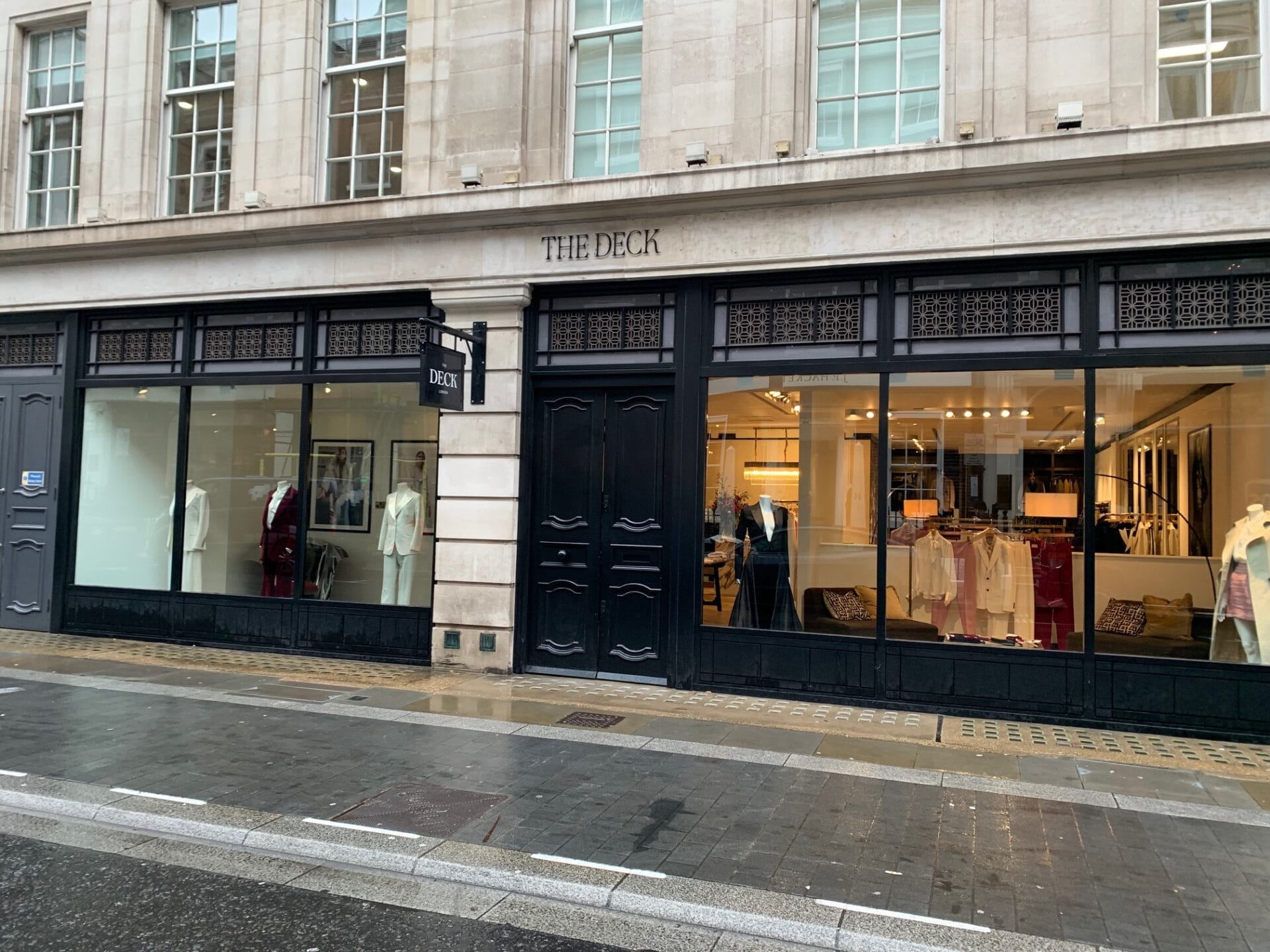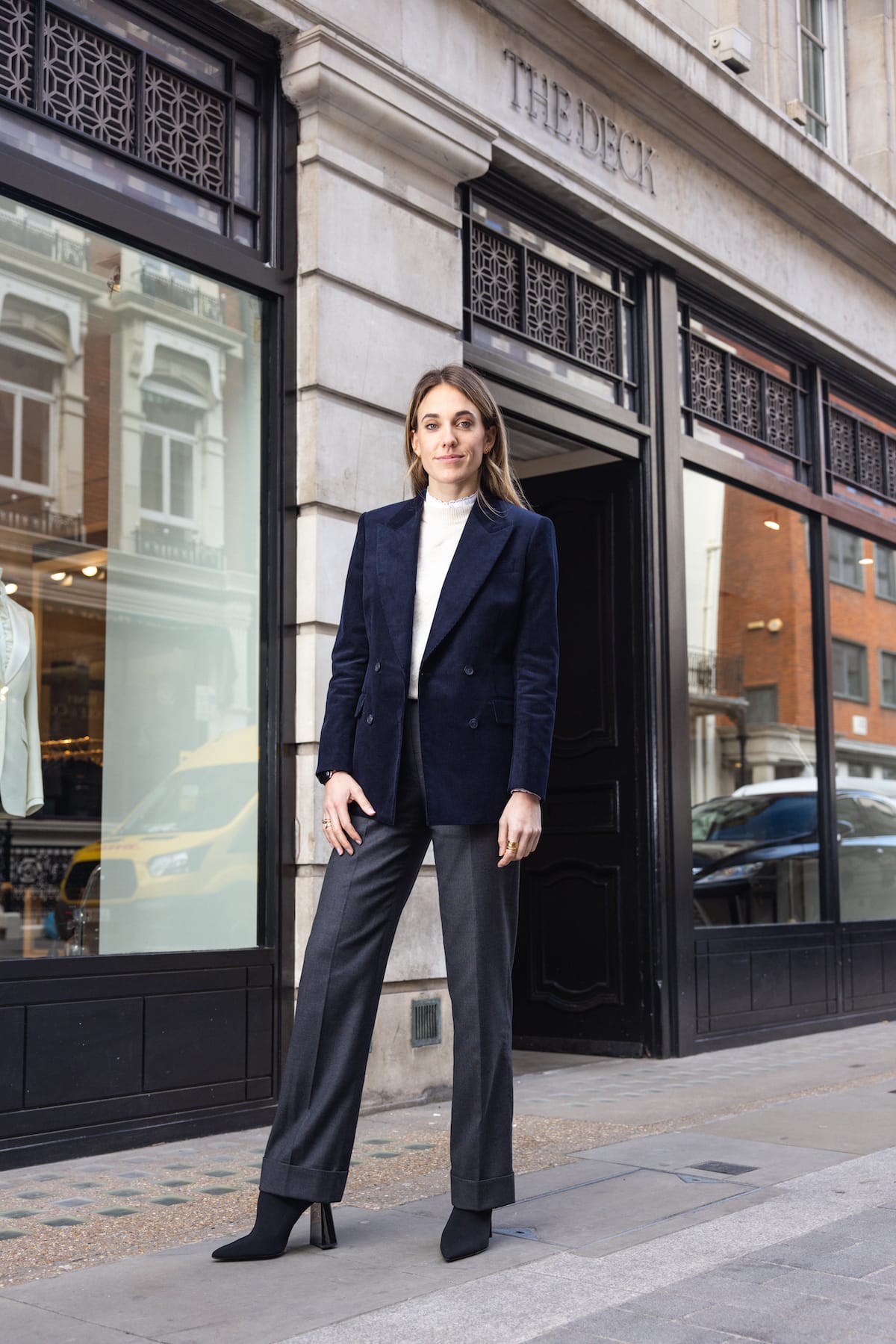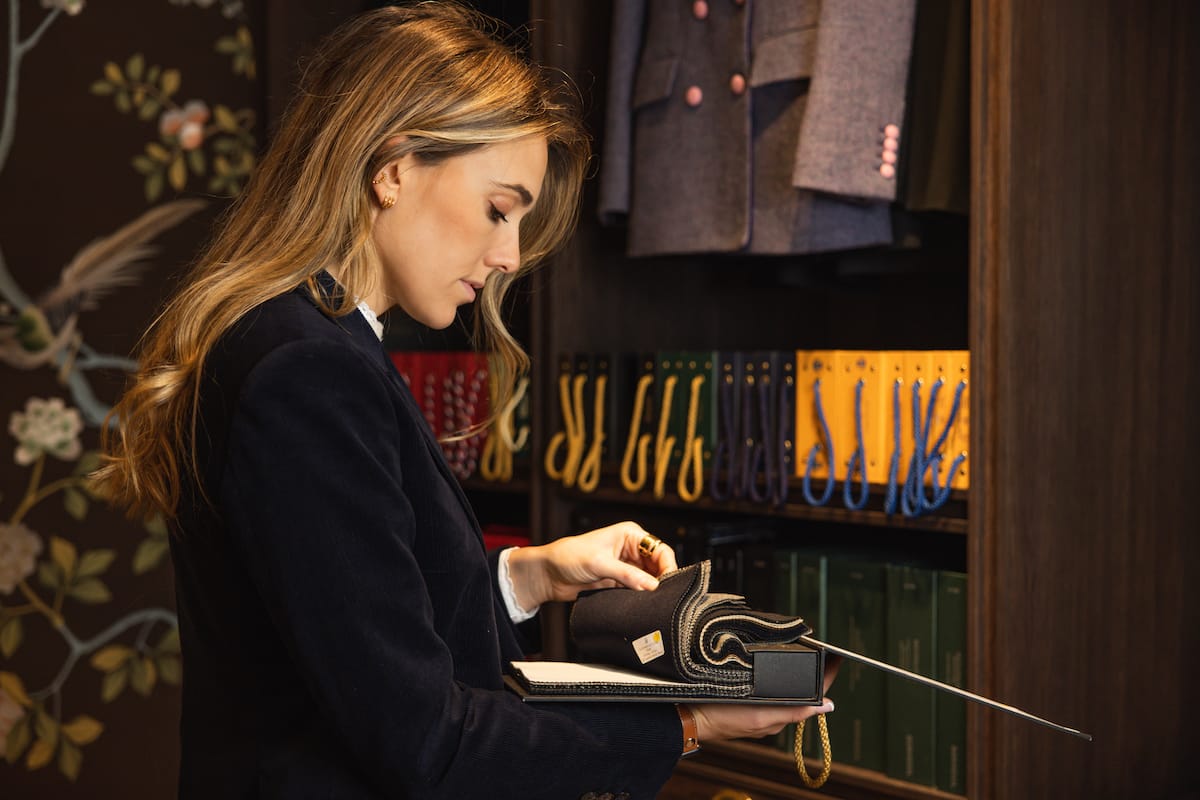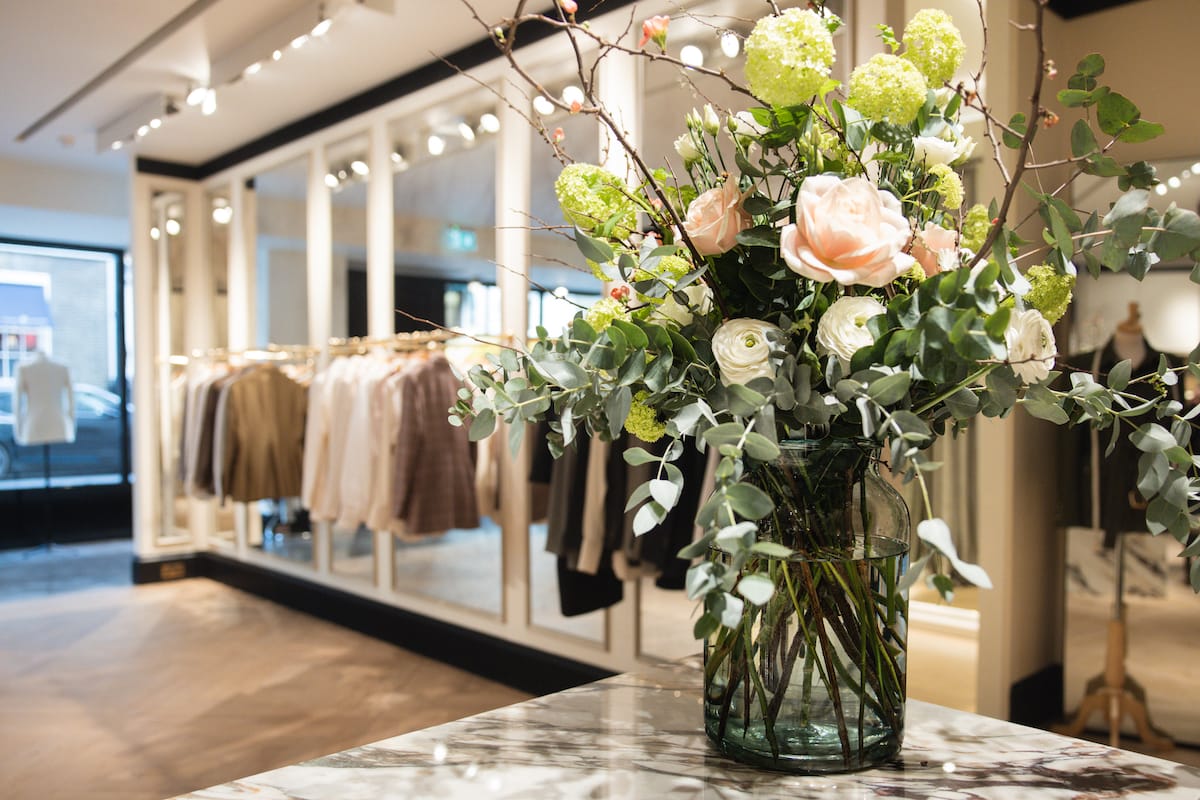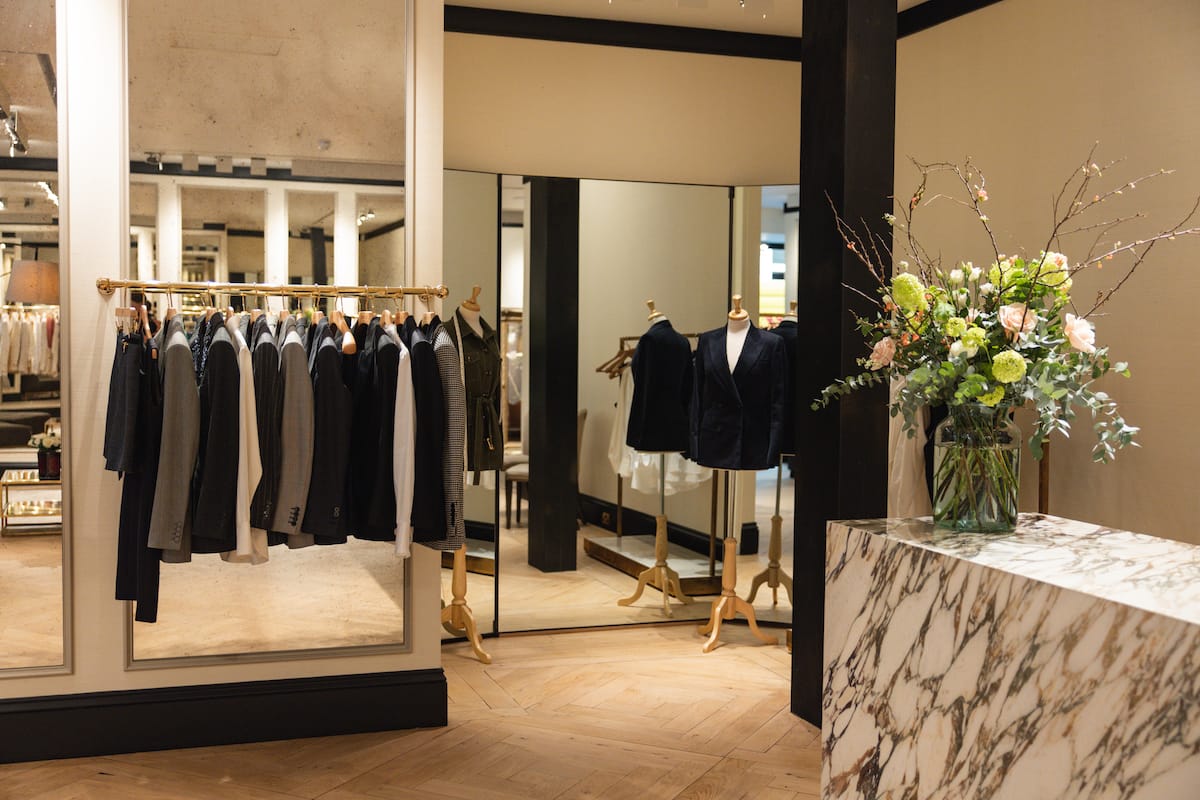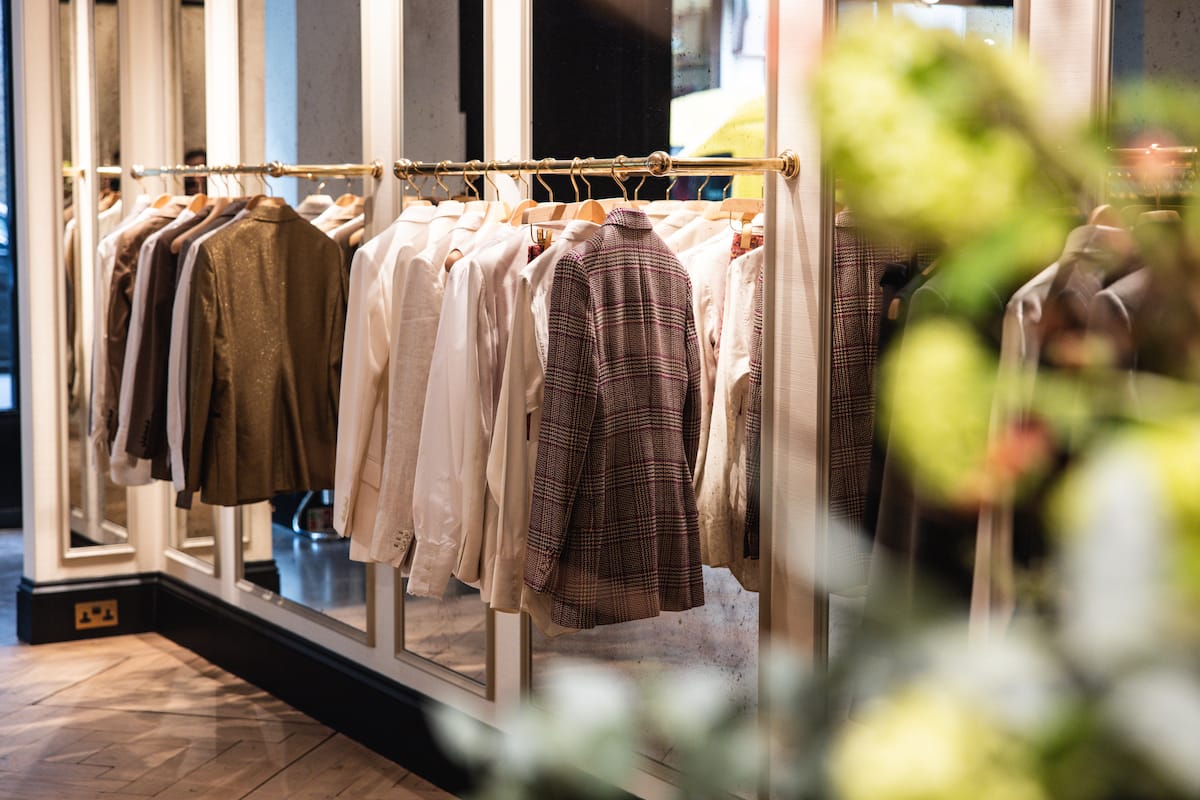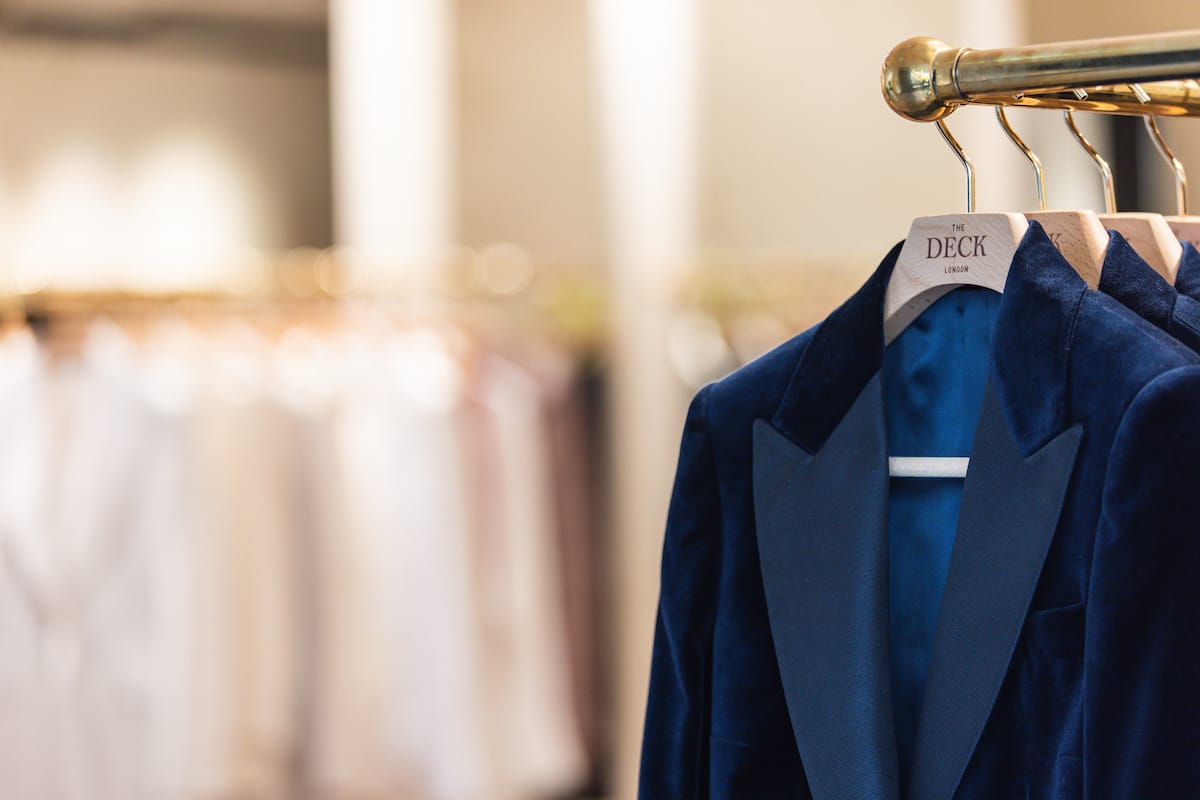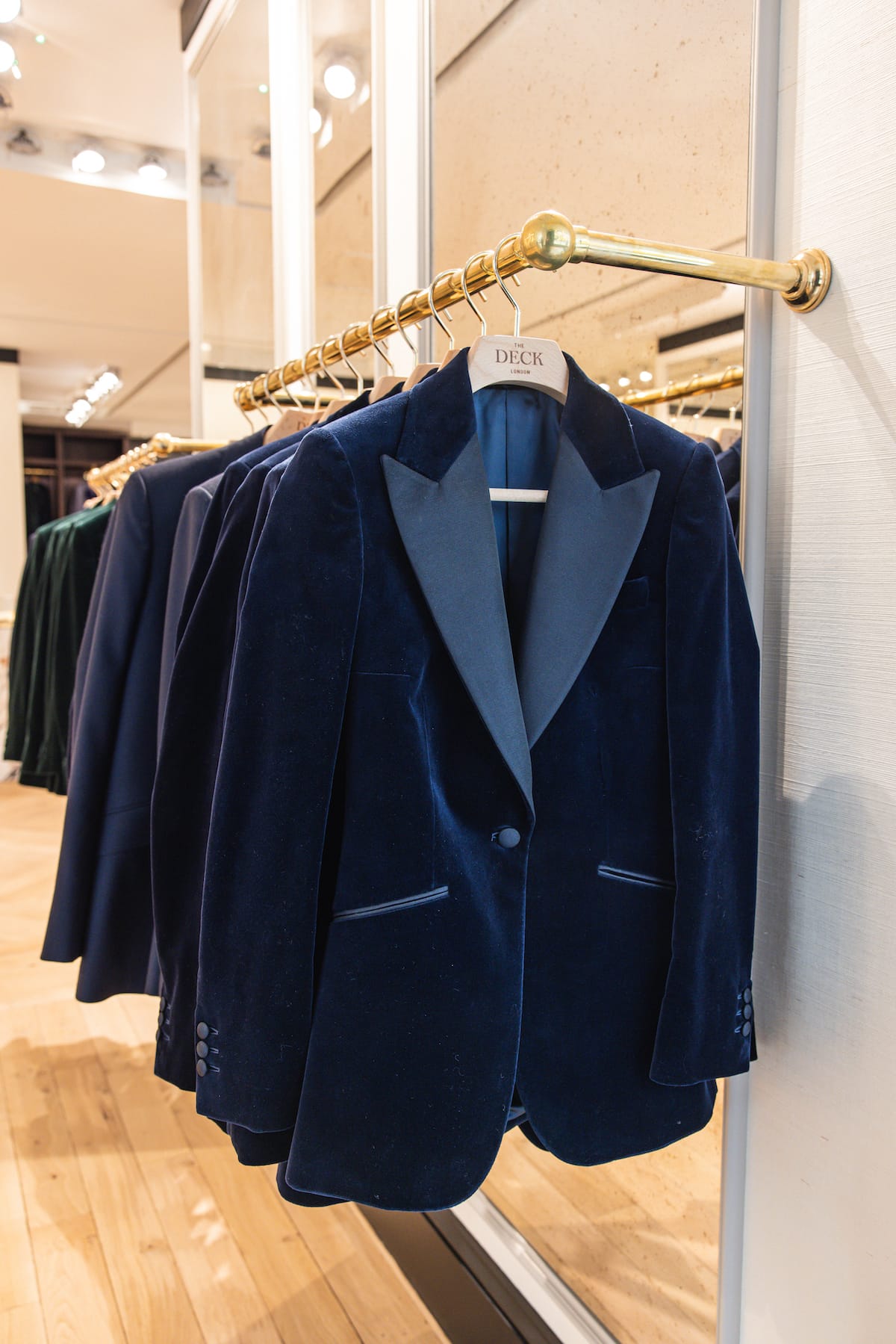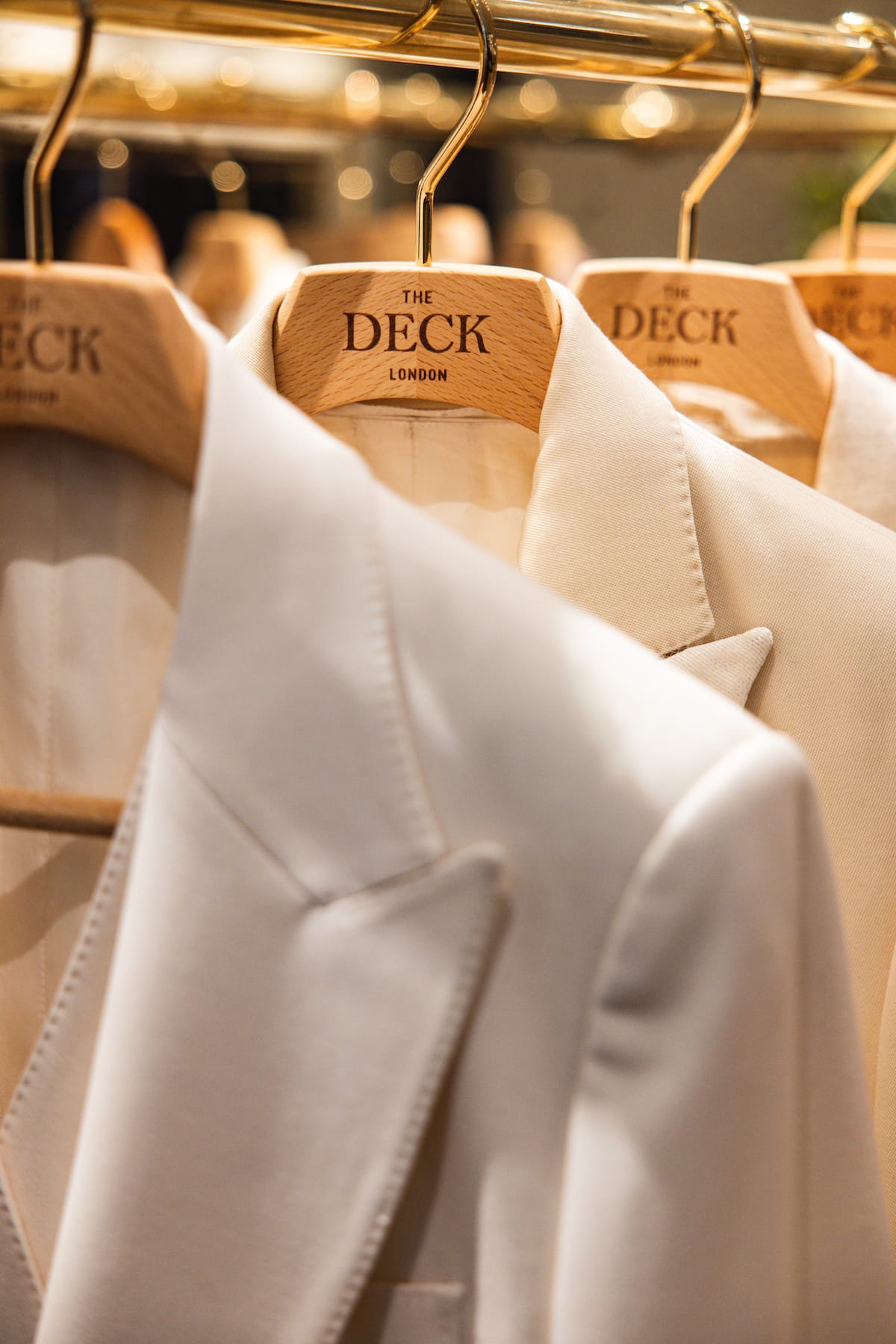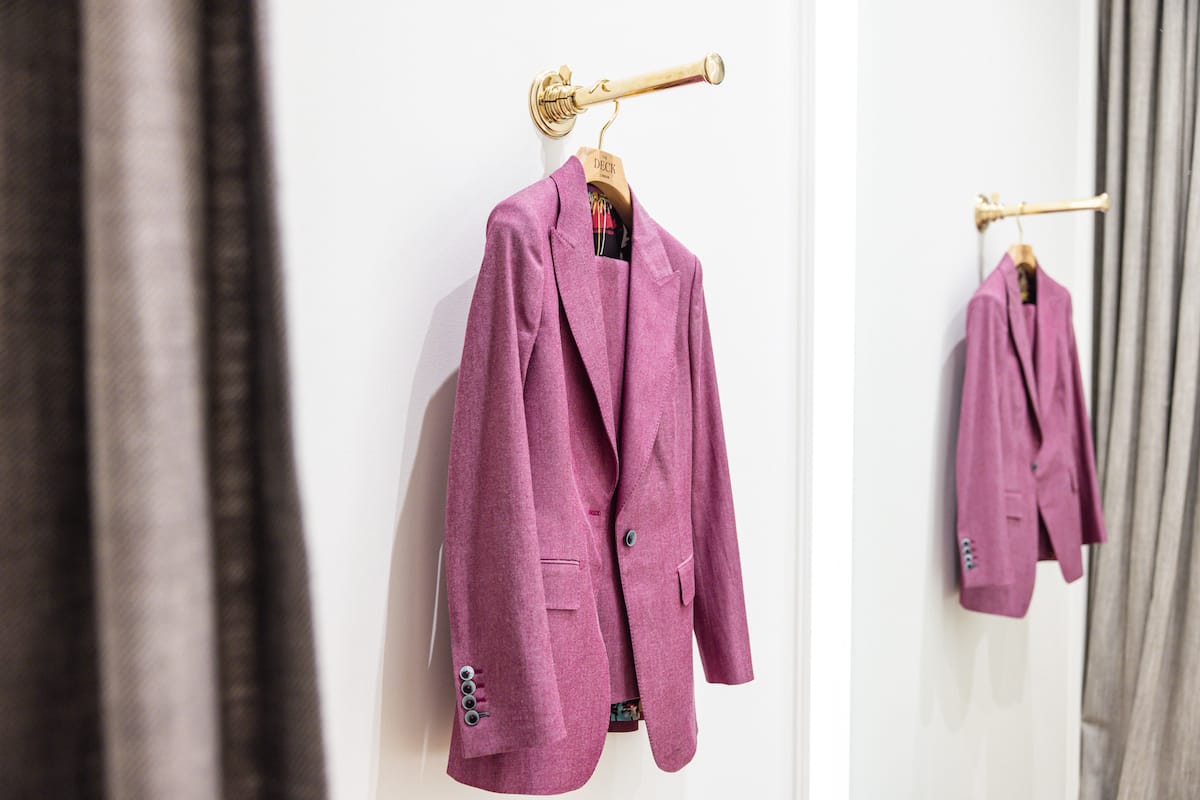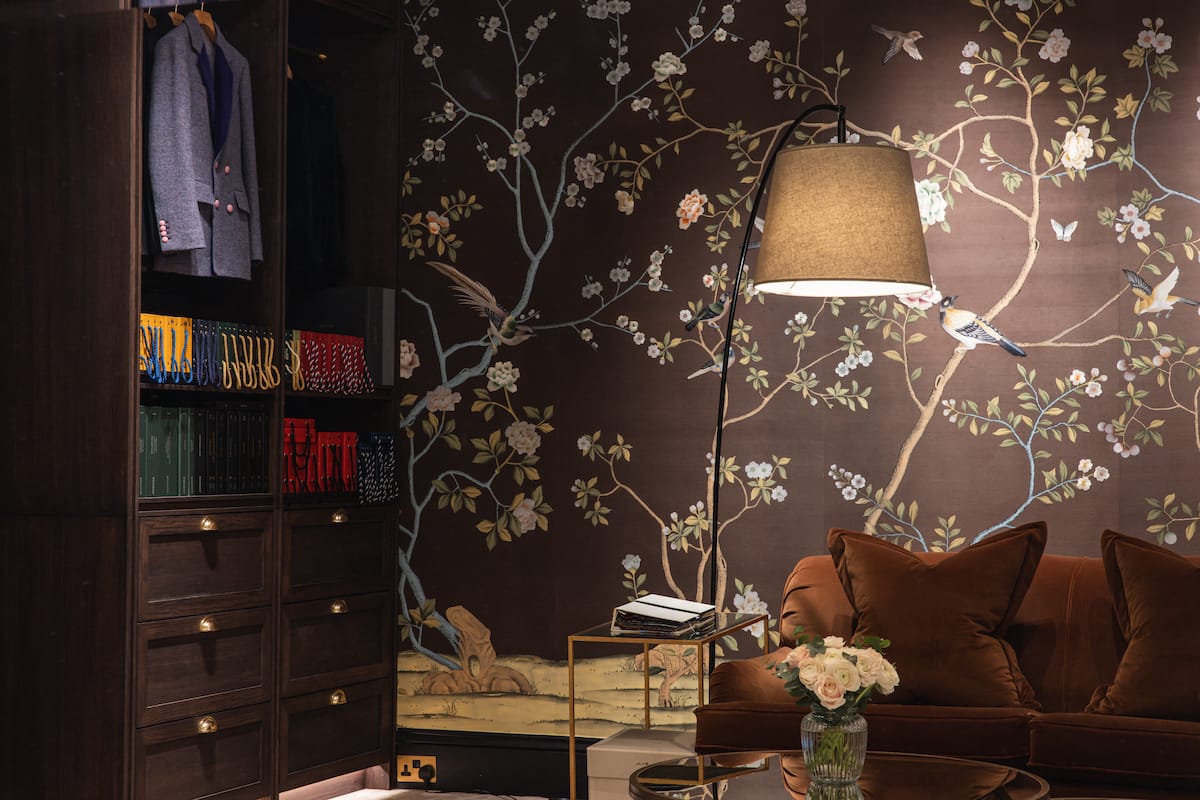The Deck playing a winning hand.
Savile Row in central London has been globally renowned for bespoke men’s tailoring from the early 1800s but the largest store-front on this world famous street is home to a women’s tailoring business that only opened its doors in 2020.
It had been the plan of Daisy Knatchbull, founder of The Deck, to go into women’s fashion but she felt it was “saturated” with no obvious route to creating a unique proposition. Instead, she went into menswear, with a stint at one of the street’s oldest bespoke tailors, Huntsman, where she was communications director.
“I was exposed to this secret and special world, which was unusual for a girl in her early 20s,” she says, adding that the real revelation came when she first wore a bespoke suit that had been made for her by the Huntsman tailors: “It got me thinking that every woman could feel this way. But it’s not easy because men change shape a lot less than women. There are lots of things that can change the shape of a woman.”
Daisy Knatchbull, founder of The Deck
© The Deck
Putting her thinking into practice initially involved garnering some publicity from a PR stunt she pulled in the Royal Enclosure at Royal Ascot in 2017 involving her wearing a morning suit with the requisite trousers. As well as prompting a rule change at the racecourse to allow women to wear trousers it also did the publicity trick and garnered her many column inches in the global media.
It also revealed what Knatchbull recognised as pent-up demand for made-to-measure women’s tailoring, which at that time was simply not accessible in the marketplace. There was tailored riding gear being made on Savile Row for women but it was a bit hidden away and specialised.
Her simple plan was to make it much more accessible to women with the opening of a store – in a modest basement on London’s King’s Road. It was a quick hit attracting celebrities and a move was made to Lower Sloane Street. But this was just three months before Covid-19 hit.
“We didn’t freak out as we were a lean business with one tailor and me. It was also a time of opportunity, talking to the landlords on Savile Row I found that we needed each other. In 2021 we opened the first shop front for women on the street. People thought we were crazy taking 1,500 sq ft as no women went there,” she recalls.
They were wrong and the operation has doubled its sales each year since inception, with 30-40% coming from repeat business and word-of-mouth proving the best form of customer acquisition.
© The Deck
A subsequent move to a 2,000 sq ft unit with six windows on Savile Row now makes The Deck the biggest fronted store on the street. Size certainly means a lot to the company because this is what fundamentally differentiates it from other women’s clothing brands. The tailors – of which there are currently four – take measurements, make recommendations based on body types and cut patterns for each woman’s shape. Fabrics, buttons and other elements are chosen before two separate fittings are undertaken.
During these interactions at the Savile Row store the focus is on the experience for the female clientele: “We empathise with the people in there. We can talk about periods and the menopause with our customers, it’s unintimidating and there is this unique relationship with the clothing.”
© The Deck
The final step is the fabrication (the suit’s creation) at an atelier in Portugal. This route was taken in order to keep the starting prices at a lower level – £2,800. The suits very much cater to the “conscious consumer” with natural fibres used for the cloth that is produced sustainably by crafts people and with a timeless fashion sensibility. Knatchbull suggests that such purchases should be based on the metric of cost-per-wear as the suits could easily be used three-times per week for different occasions.
“Suits for men are tied to the office but it’s different for women. They wear them for dinner, for running around, and for the Sunday walk. It’s about versatility and longevity, not just for office wear. It’s not a trend, it’s essential wear,” she says.
This thinking has not been restricted to the UK because the company has found an incredibly receptive audience in the US where there is an attraction to both its made-to-measure proposition and the appeal of British tailoring. “The US is booming and we have trunk shows in Palm Beach, New York and Texas. As much as 35-45% of revenues are from the US and it is growing as a percentage of total company revenues,” she says.
© The Deck
What will also run alongside the bespoke UK offer is the new ready-to-wear range that includes shirts, dresses, trousers and knitwear and was launched in October. Knatchbull says it was not part of the initial plan but the company’s 2,500 clients kept asking for recommendations for other clothing items. “We would send them elsewhere but then we thought, why not do small-batch runs of other clothing lines? As long as we’re doing it to our values, then why not,” she asks.
This database of clients and the rich data related to their sizing is proving informative to the ready-to-wear range as it can be analysed to determine the characteristics of say a size 14 and identify what exactly this size looks like today.
Although Knatchbull says The Deck will never lose its tailoring element, there is recognition that to scale the business – and broaden it out globally – requires the move into ready-to-wear. This has led it to move into e-commerce, with the website now operates on a transactional basis. This is one area where technology is playing a part and there will also be an exploration of generative AI and fitting technologies, she confirms.
Despite a female-focused business operating out of the broadest shop-front on Savile Row Knatchbull says she has only ever experienced a warm and welcoming environment in the 10 years that she has spent in total working on this unique road. Maybe this should not be surprising as she has effectively opened it up to the other half of the population.

